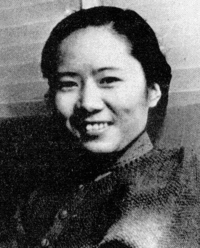Chien-Shiung Wu
Scientist
Chien-Shiung Wu (simplified Chinese: 吴健雄; traditional Chinese: 吳健雄; pinyin: Wú Jiànxióng, May 31, 1912 – February 16, 1997) was a Chinese American experimental physicist who made significant contributions in the research of radioactivity. Wu worked on the Manhattan Project, where she helped develop the process for separating uranium metal into the U-235 and U-238 isotopes by gaseous diffusion. She is best known for conducting the Wu experiment, which contradicted the Law of Conservation of Parity. This discovery earned the 1957 Nobel Prize in physics for her colleagues Tsung-Dao Lee and Chen-Ning Yang, and also earned Wu the inaugural Wolf Prize in Physics in 1978. Her expertise in experimental physics evoked comparisons to Marie Curie, and her many honorary nicknames include "the First Lady of Physics", "the Chinese Madame Curie", and the "Queen of Nuclear Research".
Personal facts
| Birth date | May 31, 1912 |
|---|
| Birth place | China , Shanghai , Jiangsu , Liuhe Taicang , Republic of China (1912–49) |
|---|
| Nationality | Republic of China (1912–49) |
|---|
| Date of death | February 16, 1997 |
|---|
| Place of death | |
|---|
| Education | University of California Berkeley National Central University Republic of China (1912–49) |
|---|
| Known for | |
|---|
